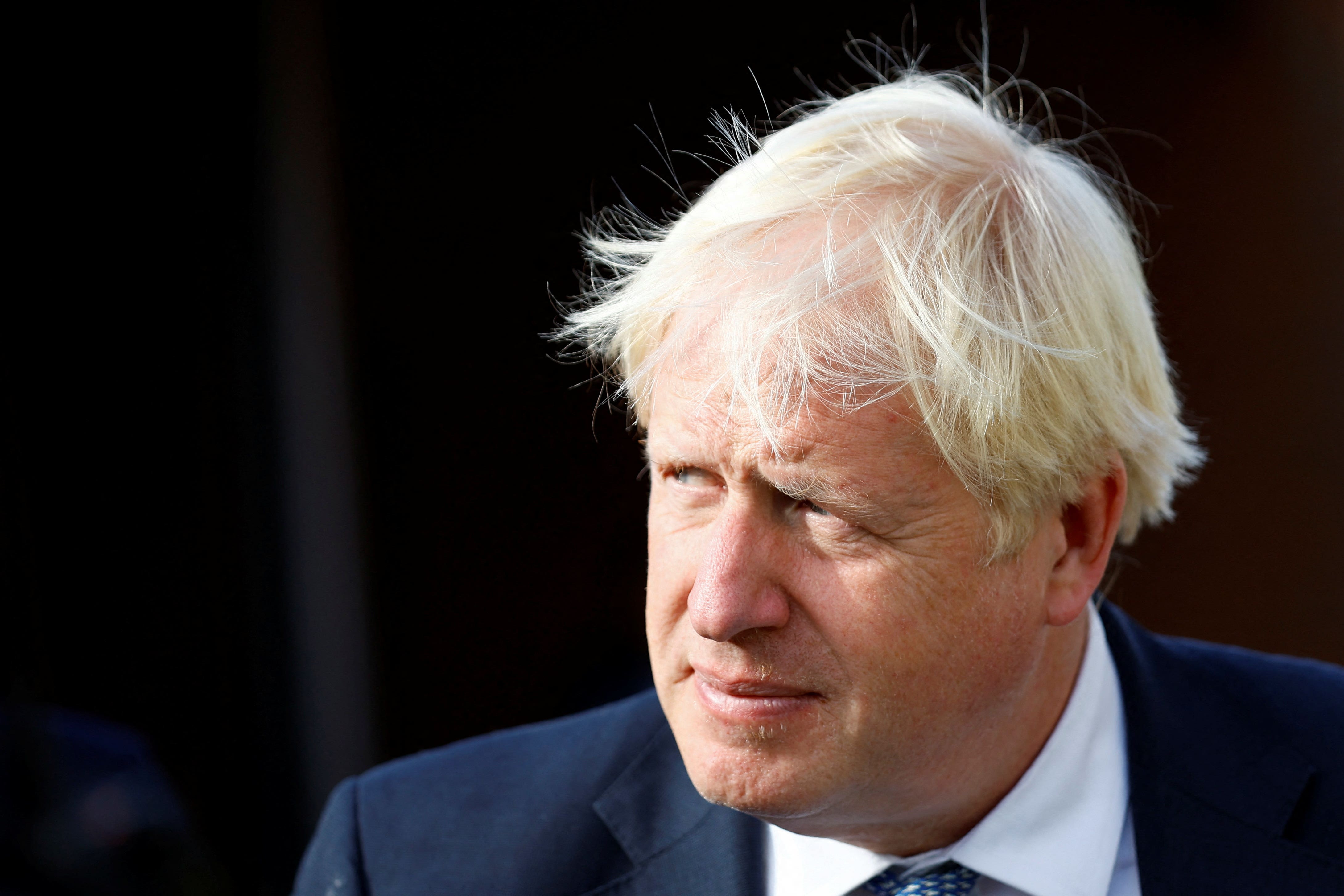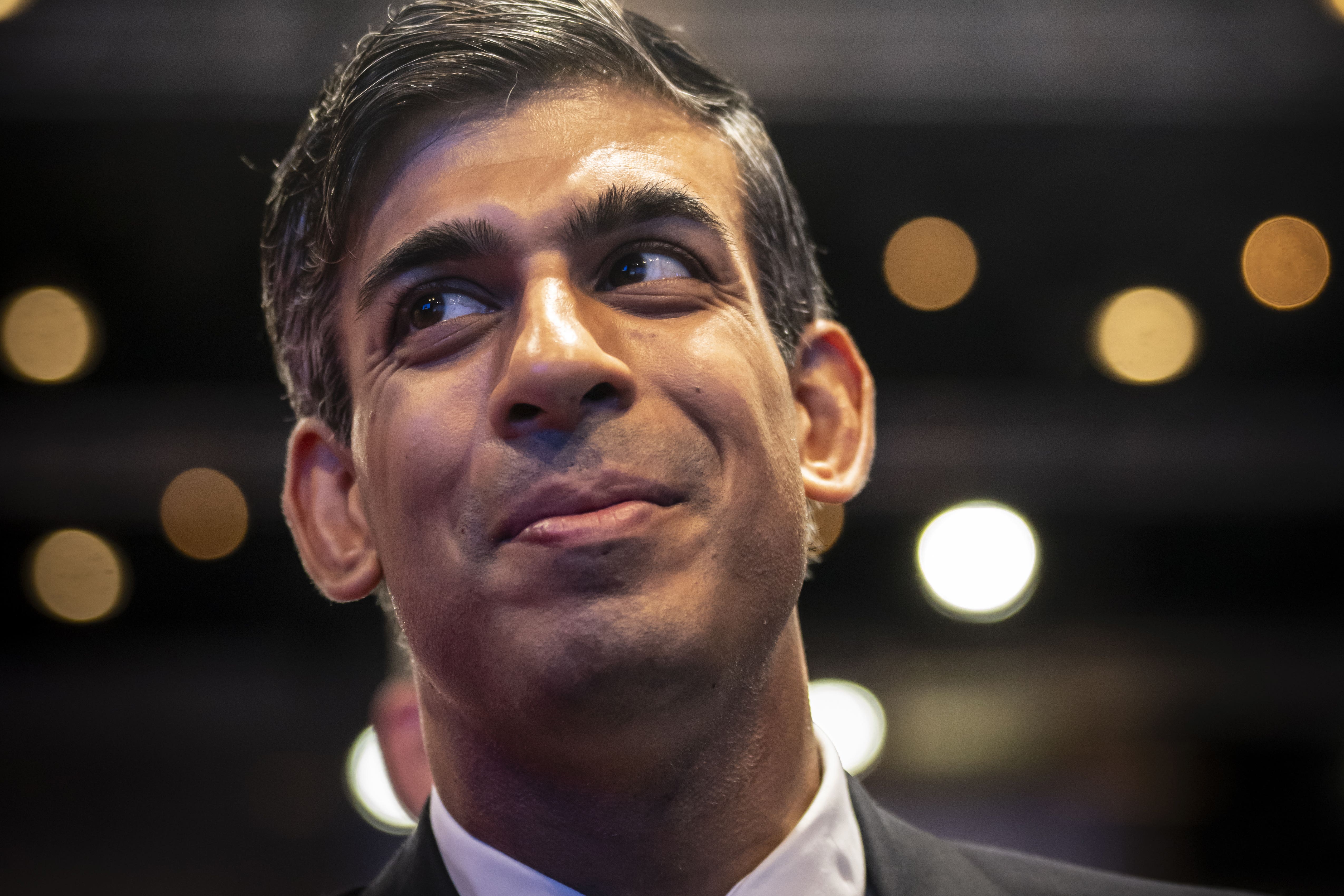Rishi Sunak’s Eat Out to Help Out was ‘confusing’ and put lives at risk, inquiry told
Eat Out to Help Out ‘encouraged social mixing’ and ‘confused public health messaging’, inquiry hears
Your support helps us to tell the story
From reproductive rights to climate change to Big Tech, The Independent is on the ground when the story is developing. Whether it's investigating the financials of Elon Musk's pro-Trump PAC or producing our latest documentary, 'The A Word', which shines a light on the American women fighting for reproductive rights, we know how important it is to parse out the facts from the messaging.
At such a critical moment in US history, we need reporters on the ground. Your donation allows us to keep sending journalists to speak to both sides of the story.
The Independent is trusted by Americans across the entire political spectrum. And unlike many other quality news outlets, we choose not to lock Americans out of our reporting and analysis with paywalls. We believe quality journalism should be available to everyone, paid for by those who can afford it.
Your support makes all the difference.Rishi Sunak’s Eat Out to Help Out scheme was “confusing” for the public and put lives at risk, the UK Covid inquiry has heard.
The British Medical Association (BMA) said the government failed to “provide clear, consistent public health messaging” throughout the pandemic, including the former chancellor’s flagship initiative to help pubs and restaurants.
It said: “The Eat Out to Help Out initiative encouraged social mixing and confused public health messaging during 2020, suggesting that it was safe for people to socialise before vaccines were available and when the risks of Covid-19 remained high.”
In a separate submission, Joanna Goodman, giving evidence as co-founder of Covid-19 Bereaved Families for Justice, said the group was “concerned” by government policies such as Eat Out To Help Out, which seemed “antithetical to efforts to protect life”.
Other key moments from Wednesday’s hearing included:
- Charities saying there was a “serious, inexcusable and avoidable failure of governance and policymaking” on children’s rights
- The TUC and charities criticising the inquiry for failing to call former education secretary Gavin Williamson to give evidence
- Women’s rights charities saying one of the consequences of lockdown was a rise in domestic abuse cases
- One decision during the pandemic being described as a “classic of the Johnson era, go fast, no go slow, listen to me, no Rishi”
- Sunak blocked Professor Chris Whitty’s advice that workers should be paid to self-isolate
The BMA added in its submission that the government’s actions to reduce the spread of Covid were “too slow” and the failure to cancel mass gatherings in March 2020, prior to the first lockdown, led to “higher cases, hospitalisations and very likely deaths”.
It said that the government “missed opportunities to learn lessons as the pandemic progressed” and these failures put healthcare workers at “greater risk of infection and death”.
The trade union for doctors and medical students also said the government enforced face mask rules “too late” and that the first lockdown should have been enacted sooner.
Jennifer Twite, representing Save the Children UK, Just for Kids Law and the Children’s Rights Alliance, told the inquiry there was a “serious, inexcusable and avoidable failure” to consider children’s rights.
Ms Twite said it was “undeniable” the pandemic had disproportionately impacted children and that this was because the government “did not sufficiently consider children’s rights and wellbeing”.
She added that lockdown was “in reality stricter for children than their parents” and that childhood was a “crucial development time” that impacts later life.

Ms Twite said: “It is why, for some, Mr Johnson’s being ‘ambushed’ by a birthday cake in lockdown touched a particular nerve. It reminded us all of the birthday parties missed by the nation’s children.
“There is something about missing your sixth birthday which frankly isn’t the same as missing your 57th. Childhood is sacrosanct and lost childhood cannot be given back.”
Mr Johnson was fined for the birthday event that took place in the Cabinet Room in June 2020.
She was critical of Mr Williamson, who was education secretary when the pandemic struck, for not being called for evidence.
Samuel Jacobs from the Trades Union Congress (TUC) similarly hit out at Mr Williamson’s lack of appearance on the witness list, saying that education unions thought it was “an omission”.

He told the inquiry there appeared to be “dysfunction” in government decision making, and that in a WhatsApp message from Simon Case, the cabinet secretary described a particular decision as a “classic of the Johnson era, go fast, no go slow, listen to me, no Rishi.”
Mr Jacobs said the government took “a bold approach to protecting jobs and the economy” but that it failed to show the “same endeavour in relation to safety in the workplace”, in particular those on lower incomes.
He referred to two messages in the government’s chief scientific adviser Patrick Vallance’s diary that indicated the former chancellor had blocked the idea of paying people to self-isolate.
In an entry on 21 Aug 2020, Mr Vallance said: “Chief medical officer [Chris Whitty] said clearly that financial support for people self-isolating is key ... cabinet office working through mechanisms very slowly.”
And on 7 September 2020, he wrote: “Chancellor [Rishi Sunak] blocking all notion of paying to get people to isolate despite all the evidence that this will be needed.”
The government did later in September introduce a scheme that allowed people to claim £500 if they were on low incomes and had to self-isolate.
In other developments, Liz Davies KC, on behalf of Solace Women’s Aid and Southall Black Sisters, said one of the consequences of Covid and the government’s response “was a rise in domestic abuse as a result of isolation rules and lockdown”.
Ms Davies said that despite an increase in cases, women seeking help found that “options normally available to them had diminished”.
She said: “We do not suggest that self-isolation regulations or lockdown were unnecessary nor do we suggest the government could have entirely prevented domestic abuse rising during lockdown. But we do say that the inevitable increase was far from the government’s mind.”
The government failed to plan for the rise in domestic abuse cases and remedial measures that were needed in advance of lockdown, Ms Davies said.



Join our commenting forum
Join thought-provoking conversations, follow other Independent readers and see their replies
Comments